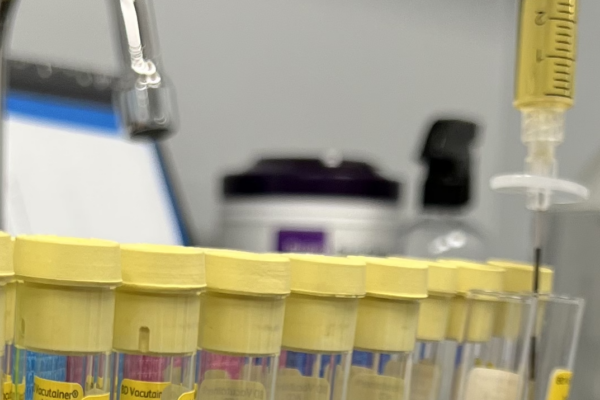Shoulder pain is a common complaint that can be caused by a variety of issues. The shoulder is a complex joint made of bones, muscles, tendons, or ligaments. When any of these components become damaged or inflamed, it can lead to pain and limited mobility.
Symptoms of shoulder pain can vary depending on the underlying cause. Some common symptoms include a dull ache in the shoulder, limited range of motion, stiffness, and weakness in the arm or hand. In some cases, shoulder pain may also be accompanied by swelling, redness, or warmth in the affected area.
The body is constantly repairing itself, but the problem is that there isn’t a good blood supply to tendons and joints. And since the blood is what carries all of the nutrients and minerals that the body needs to heal, the shoulder can’t repair itself properly. This leads to damage that builds up over time that the body has a difficult time repairing.
Some common causes of shoulder pain include rotator cuff injuries, tendinitis, bursitis, and arthritis. Rotator cuff injuries occur when the tendons or muscles that hold the shoulder joint in place become damaged or torn. Tendinitis is inflammation of the tendons in the shoulder, while bursitis is inflammation of the fluid-filled sacs that cushion the joint. Arthritis is a degenerative condition that can cause inflammation and pain in the shoulder joint.
If you are experiencing shoulder pain, it is important to consult a healthcare professional. They will be able to diagnose the underlying cause of the pain and recommend treatment options. These options can include any of the following:
- Physical therapy: A physical therapist can help you strengthen the muscles in your shoulder, improve your range of motion, and reduce pain.
- Medications: Over-the-counter pain relievers such as ibuprofen and acetaminophen can be effective in reducing shoulder pain.
- Ice therapy: Applying an ice pack to the affected area can help reduce inflammation and pain.
- Heat therapy: Using a heating pad or taking a warm shower can help increase blood flow to the shoulder, which can reduce pain and stiffness.
- Stretching: Gentle stretching exercises can help improve range of motion and reduce pain in the shoulder.
- Massage: A massage therapist can help relieve muscle tension and pain in the shoulder.
- Chiropractic care: Chiropractic adjustments can help improve alignment and reduce pain in the shoulder.
- Acupuncture: Acupuncture can help reduce pain and inflammation in the shoulder.
- Ultrasound therapy: Ultrasound therapy can help reduce inflammation and pain in the shoulder.
- Cortisone injections: Cortisone injections can help reduce inflammation and pain in the shoulder.
- Surgery: In some cases, surgery may be necessary to repair a damaged shoulder joint.
- Rest: Resting the shoulder and avoiding activities that cause pain can help reduce inflammation and pain.
- Posture: Practicing good posture can help reduce strain on the shoulder and reduce pain.
- Weight management: Maintaining a healthy weight can help reduce the risk of shoulder pain.
- Ergonomics: Making adjustments to your workstation and tools can help reduce strain on the shoulder and reduce pain.
- Regenerative Medicine Therapies: These are treatments that focus on healing the root cause of the problem and reverse damage to tendons and joints so that you can avoid medications and surgery.
Here at Blue Mountain Wellness in Lebanon County, our chiropractors do a full assessment of your shoulder and determine the cause of your pain, then offer the best solutions to get you feeling better quickly.
Click the link HERE to take advantage of our $49 special!
